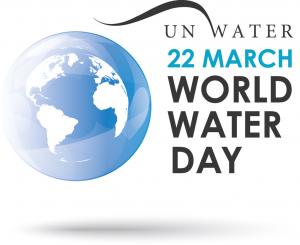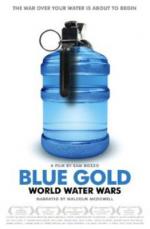March 20, 2018 | SuzyQ

World Water Day is celebrated every year on March 22 to focus attention on the importance of water throughout the globe. Water issues are especially important in Michigan with our abundant supply of, and easy access to, fresh water. Here are a few facts from the United Nations and a list library materials to help you learn more about the world's most precious resource.
Did you know that...
- 2/3 of natural wetlands have disappeared since 1900?
- 1.9 billion people live in areas where water is already scarce?
- 2.1 billion people have no safely-managed drinking water services?
- 80% of all the world's wastewater flows back into rivers and oceans without treatment?
- Restoring ecosystems creates jobs in areas like recreation, fishing, forestry, and agriculture?
Wars of the future will be fought over water, as they are today over oil, as the source of all life enters the global marketplace and political arena. Corporate giants, private investors, and corrupt governments vie for control of our dwindling fresh water supply, prompting protests, lawsuits, and revolutions from citizens fighting for the right to survive. Past civilizations have collapsed from poor water management. Will ours too?
Examines the water crisis in Flint, Michigan, and looks at the vulnerabilities of the water supplies in other U.S. cities..
Record of the massive peaceful resistance led by the Standing Rock Sioux Tribe to the Dakota Access Pipeline through their land and underneath the Missouri River.
The Pacific Ocean covers one third of the Earth's surface, holds half of the world's water, and hides the deepest place on the planet. It is a place where huge and iconic, rare and dazzling creatures live, and where creatures yet to be discovered lurk. Filmed in cinematic 4K, the program breaks the boundaries between land and sea to present the Pacific Ocean in a way never seen before.
Explores water quality and shortages around the world and how activists are seeking solutions to the growing problems that humans face with water.
Long before the Deepwater Horizon explosion in the Gulf, BP was widely viewed as a company that valued deal-making and savvy marketing over safety, a 'serial environmental criminal' that left behind a long trail of problems, deadly accidents, disastrous spills, countless safety violations, which many now believe should have triggered action by federal regulators.
Sandra Postel takes readers around the world to explore water projects that work with, rather than against, nature's rhythms. In New Mexico, forest rehabilitation is safeguarding drinking water; along the Mississippi River, farmers are planting cover crops to reduce polluted runoff; and in China, "sponge cities" are capturing rainwater to curb urban flooding. Efforts like these will be essential as climate change disrupts both weather patterns and the models on which we base our infrastructure. We will be forced to adapt. The question is whether we will continue to fight the water cycle or recognize our place in it and take advantage of the inherent services nature offers.
With hardly a day without a water-crisis story somewhere, Let There Be Water offers prescriptions on how countries, cities, and businesses can avoid the worst of it. With sixty percent of the country in a desert and despite a rapidly growing population, Israel has been jumping ahead of the water-innovation curve for decades. Israel's national unity and economic vitality are, in part, the result of a culture and consciousness that understands the central role of water in building a dynamic, thriving society. By boldly thinking about water, Israel has transformed the normally change-averse, water-greedy world of agriculture with innovations like drip irrigation, creation of smart seeds for drought-friendly plants, and careful reuse of highly treated waste-water.
Turn on the faucet, and water pours out. Pull out the drain plug, and the dirty water disappears. Most of us give little thought to the hidden systems that bring us water and take it away when we're done with it. But these underappreciated marvels of engineering face an array of challenges that cannot be solved without a fundamental change to our relationship with water, David Sedlak explains in this enlightening book. To make informed decisions about the future, we need to understand the three revolutions in urban water systems that have occurred over the past 2,500 years and the technologies that will remake the system.




















